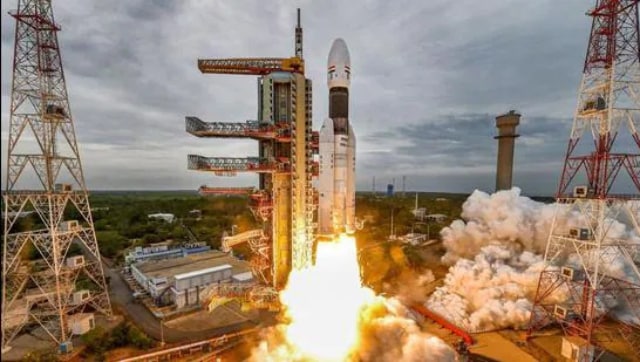It’s India’s Game: Space sector can grow to $40-100 billion by 2040, says top consultancy firm

The Indian space industry is valued at $8 billion today but it can grow to $40-100 billion by 2040, if we play our cards right, a report by consultancy firm Arthur D. Little has revealed. For that, we need to establish India as a satellite manufacturing hub, and create programs under ISRO
According to a recent report by consultancy firm Arthur D. Little, India has the potential to develop a robust space industry worth $40-$100 billion by 2040.
This growth can be attributed to several factors, including an increasing space budget, a rise in the number of launch services offered by the country, the entry of private players and startups into the space sector, and a significant boom in the satellite internet market within India.
Currently, India’s space industry is valued at $8 billion, making up a 2% share of the global space economy. The government spends approximately $2 billion on space activities, and since 1999, India has successfully launched 381 foreign satellites for 34 countries, generating revenues of $279 million.
Related Articles

Google Bets Big On Pixxel: Invests in Indian space-tech startup, had sent satellite on Elon Musk’s SpaceX

ISRO to transition out from manufacturing operational space systems according to new policy
The Indian Space Research Organisation (ISRO), ranked as the world’s sixth-largest national space agency, recently launched Chandrayaan-3 on July 14. This mission serves as a continuation of Chandrayaan-2 and aims to demonstrate the ability to safely land and explore the lunar surface.
Arthur D. Little’s Managing Partner for India & South Asia, Barnik Chitran Maitra, emphasized the need for India to adopt satellite internet services more widely and leverage its existing strengths in satellite and launch vehicle manufacturing.
He also suggested developing capabilities in high-potential sectors like space mining and in-space manufacturing, exploring new avenues such as space tourism and space entertainment, and fostering innovation in eco-friendly space technologies.
The consultancy firm predicts that the global space market will reach $1 trillion by 2040, while India’s space market has been growing at an annual rate of 4% in recent years.
India’s government aims for the country’s space sector to account for 9% of the global industry by 2030, and with the current trajectory, India’s space economy could reach $40 billion by 2040. However, the firm believes that India could achieve even greater success, potentially claiming a share of the global space economy amounting to $100 billion by 2040.
India’s space startups have already received over $200 million in funding since 2021, and with ISRO’s plan to establish its own space station by 2030, further private sector investments are anticipated.
Space tourism is also on the rise, with companies like Virgin Galactic developing commercial spacecraft for suborbital spaceflights to cater to space tourists. While space tourism is already underway to some extent, more companies are expected to initiate pilot flights within the next 12-18 months. It is projected that by 2030, space tourism will be a premium experience, though not widely accessible, with current ticket prices ranging from $50,000 to $100,000.
To achieve the ambitious $100 billion target for the space industry by 2040, Arthur D. Little suggests that India needs to enact clear and comprehensive regulations covering all aspects of space, encourage foreign investments in satellite facilities, utilize production-linked incentives (PLI) to establish India as a satellite manufacturing hub.
We also need to create a “sandbox” program under ISRO to support early-stage startups, collaborate with international companies through joint ventures and acquisitions, establish dedicated research and development centres for emerging space themes, and accelerate skill development initiatives to build a skilled workforce.
For all the latest Technology News Click Here
For the latest news and updates, follow us on Google News.
